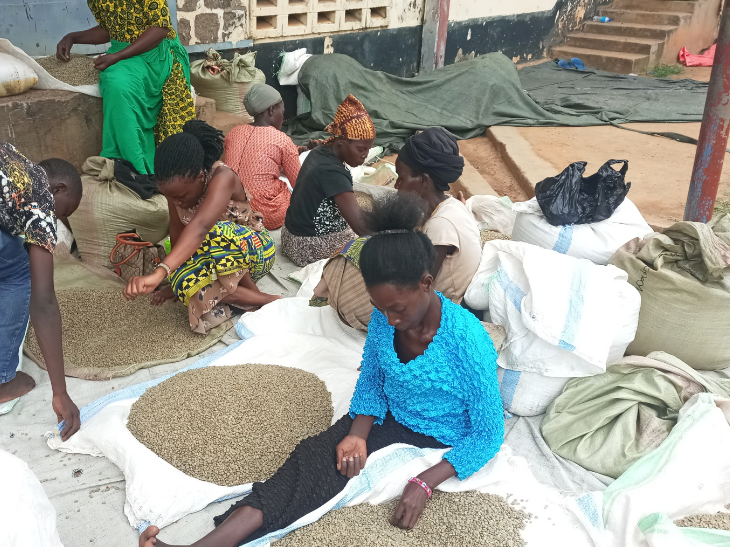KAMPALA, May 30, 2025 – – As you enjoy your morning cup of coffee, have you ever paused to consider the hands that picked the beans? In Uganda, coffee is more than a crop, it is a critical livelihood for millions. Yet, behind its rich aroma lies a troubling truth; a growing proportion of Uganda’s coffee is being harvested, sorted or prepared for drying by children.
A new report by the International Labour Organization [ILO] has revealed a significant increase in child labour within Uganda’s coffee supply chains.
Uganda is Africa’s second-largest coffee exporter after Ethiopia. The crop supports countless households, particularly in rural areas. However, according to Uganda’s 2024 Labour Force Survey, the number of children aged 5 to 17 engaged in child labour rose sharply from 2.4 million in 2016/2017 to 6.2 million between 2021 and 2024 — with a majority reportedly working within the coffee sector.
The ILO report highlights several districts in central Uganda — including Bukomansimbi, Masaka, Kalungu, Mpigi, Butambala, and Rakai — where child labour is particularly prevalent. Many of these children are exposed to hazardous work, which threatens both their health and future prospects.
In eastern Uganda, districts known for producing Arabica coffee — such as Mbale, Bulambuli, Sironko, and Namisindwa — also reported cases of child labour.
This is happening despite the Food and Agriculture Organization [FAO], the International Trade Centre [ITC], and UNICEF launching the CLEAR Supply Chains Project — short for “Ending child labour in supply chains: Addressing the root causes of child labour in supply chains through an area-based approach.”
This initiative aims to tackle the root causes of child labour by strengthening the capacity of communities, government bodies, social partners and private sector actors to identify, monitor and respond to child labour cases, particularly within the coffee industry. It also builds on existing efforts to address similar issues in mineral supply chains, including cobalt mining.
The project recently began with a series of training sessions for district officials, including agricultural officers, community development officers, production and commercial officers in the districts of Masaka, Kalungu and Bukomansimbi. These sessions focused on child labour and occupational health and safety.
Also participating were representatives from the Kalungu District Farmers Association [KADFA], SOLIDARIDAD, the International Women’s Coffee Alliance, and ministries including the Ministry of Agriculture, Animal Industry and Fisheries [MAAIF] and the Ministry of Gender, Labour and Social Development [MGLSD].
During the training, several district-level action plans were developed to guide efforts in identifying, monitoring, and eliminating child labour.
Reuben Keimusya, Assistant Commissioner at MAAIF, welcomed the initiative, calling it timely and essential as Uganda aligns its coffee production practices with European Union regulations for sustainable market access.
“We are committed to integrating child labour prevention into new coffee regulations and standard operating procedures,” he said.
Globally, the situation remains dire. The 2020 Child Labour Global Estimates indicate that 160 million children, 63 million girls and 97 million boys — are in child labour. Coffee ranks as the fourth most affected sector globally, following gold, brickmaking and sugarcane.
The drivers of child labour in globally traded commodities like coffee and minerals are complex and interconnected. They include poverty, lack of legal enforcement, insufficient access to education, weak social protection systems, and poor labour rights implementation.
In the coffee sector specifically, fluctuating prices, low farm-gate prices, climate change, and limited value addition by smallholder farmers further exacerbate the problem.
As Uganda charts its path towards more ethical and sustainable coffee production, international cooperation and local empowerment remain key to ending child labour in the fields — and ensuring that the country’s most vulnerable are not paying the price for global demand.
Child labour is work that deprives children of their childhood, their potential and/or their dignity, is harmful to physical and mental development and/or interferes with schooling.
https://thecooperator.news/uganda-aims-to-register-2-8mln-coffee-farmers-ahead-of-eudr-deadline/
Buy your copy of thecooperator magazine from one of our country-wide vending points or an e-copy on emag.thecooperator.new
